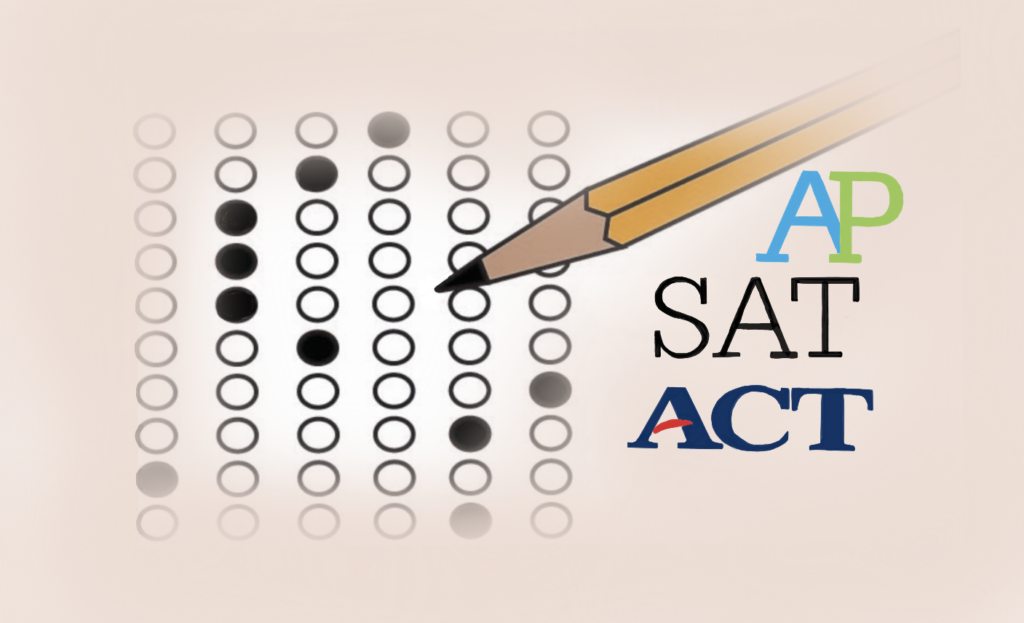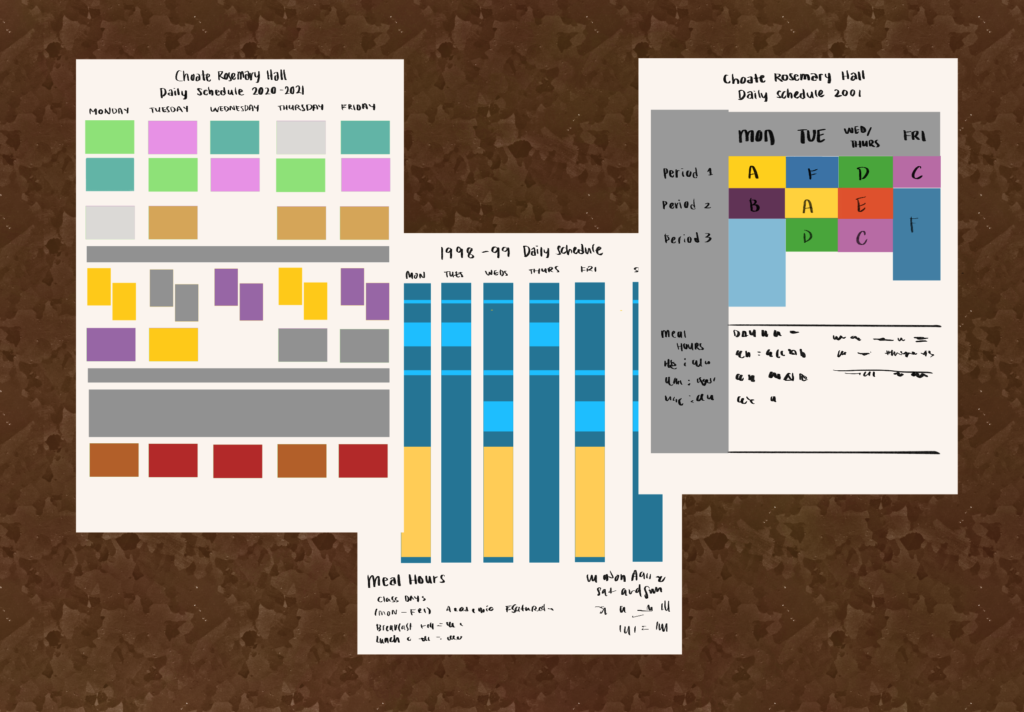At some point in their high school career, most students will face one of the most dreaded aspects of college applications: standardized testing. Colleges and universities primarily use these tests to obtain a base measurement of an applicant’s academic ability, as other measures of academic potential, such as GPA, tend to vary from school to school.
This past year, the Covid-19 pandemic has forced many standardized testing centers to shut down. Even though some students managed to take standardized tests before the pandemic, many were left with no test scores to submit to colleges. Therefore, many institutions were forced to rethink their application process. Choate, alongside many colleges and preparatory schools, eventually decided to make standardized testing optional to accommodate students without scores.
Director of Admissions Mr. Jeff Beaton said, “We were talking about going test-optional in the summer months, and we don’t want to put families into a situation where they felt they had to take a test, especially in-person where it’s not safe.”
As one of the pioneer boarding schools to make standardized testing optional for their applicants, Choate has communicated with the Ten Schools Administration and Bates College on how to approach this new change.

Graphic by Yuko Tanaka/The Choate News
Initially, many prospective families were shocked about the change, as they assumed that standardized testing was a major, irreplaceable part of the application process. Although it may seem that eliminating standardized testing scores would be a huge obstacle to the admissions process, the Admission Office welcomes this new change as a step in the right direction.
“Even before this pandemic, our reading process was so much more than a test score,” Mr. Beaton said. “It is just one small piece of a larger holistic read. A standardized test isn’t going to tell me how a student is going to do in a transition of being away from home. I think everyone puts so much time and resource into a test. That is what we are trying to get away from and instead focus on your schoolwork.”
After reviewing the cycle of new students in this test-optional year, the Admission Office will decide whether the School will continue to require standardized testing scores for future applicants. “Standardized testing is a huge equity issue,” Mr. Beaton noted. “Not every student has the resources to get a private tutor or to buy that book to prep them. I think [test-optionality] can equalize the admissions process and focus on what is most important…we are already getting so much good context from other pieces of the application.”
Similarly, Director of College Counseling Ms. Marcia Landesman said, “These tests don’t necessarily show the broad range of skills students have and how they can perform in college.”
In addition to Choate’s new test-optional policy, the College Counseling Office has adapted to support applicants navigating a test-optional college admissions season. While students who came back during the fall were still able to take the SAT at the Worthington Johnson Athletics Center (WJAC), seating was reduced to accommodate the social distancing protocols. As a result, not every student had the opportunity to take the exam.
Although this initially seemed to be an issue, many colleges already opted out of requiring standardized testing in their applications. If colleges had continued to require standardized tests, they would end up limiting the number of applicants able to apply.
Certain institutions have already begun to eliminate standardized testing, at least temporarily, from their application process. The University of California (UC) system, for example, adopted a new standardized testing policy: admissions will be test-blind for this year due to the pandemic, test-optional next year, and once again test blind in the two years that follow. The UC system is also working towards creating its own standardized test for the 2025 admission cycle.
Undeniably, the Covid-19 pandemic has catalyzed a movement that forced institutions to reconsider the merit of standardized tests. “What’s more important is the high-school transcript,” said Ms. Landesman.
Just this past week, College Board — the company that facilitates the SAT suite of exams — announced that the optional essay on SAT tests and the SAT subject tests would be discontinued, effective immediately. This choice came in part because of their dwindling significance in college admissions and recent challenges posed by the pandemic.
With the future of standardized testing so uncertain, many are wondering what permanent changes to the application process will come of the pandemic. “Up until a few years ago, [standardized tests] kept getting more important until their peak,” said Stephanie Su ’21. “Now, we are at their comedown. It will be interesting to see what applications will look like ten to fifteen years from now.”




